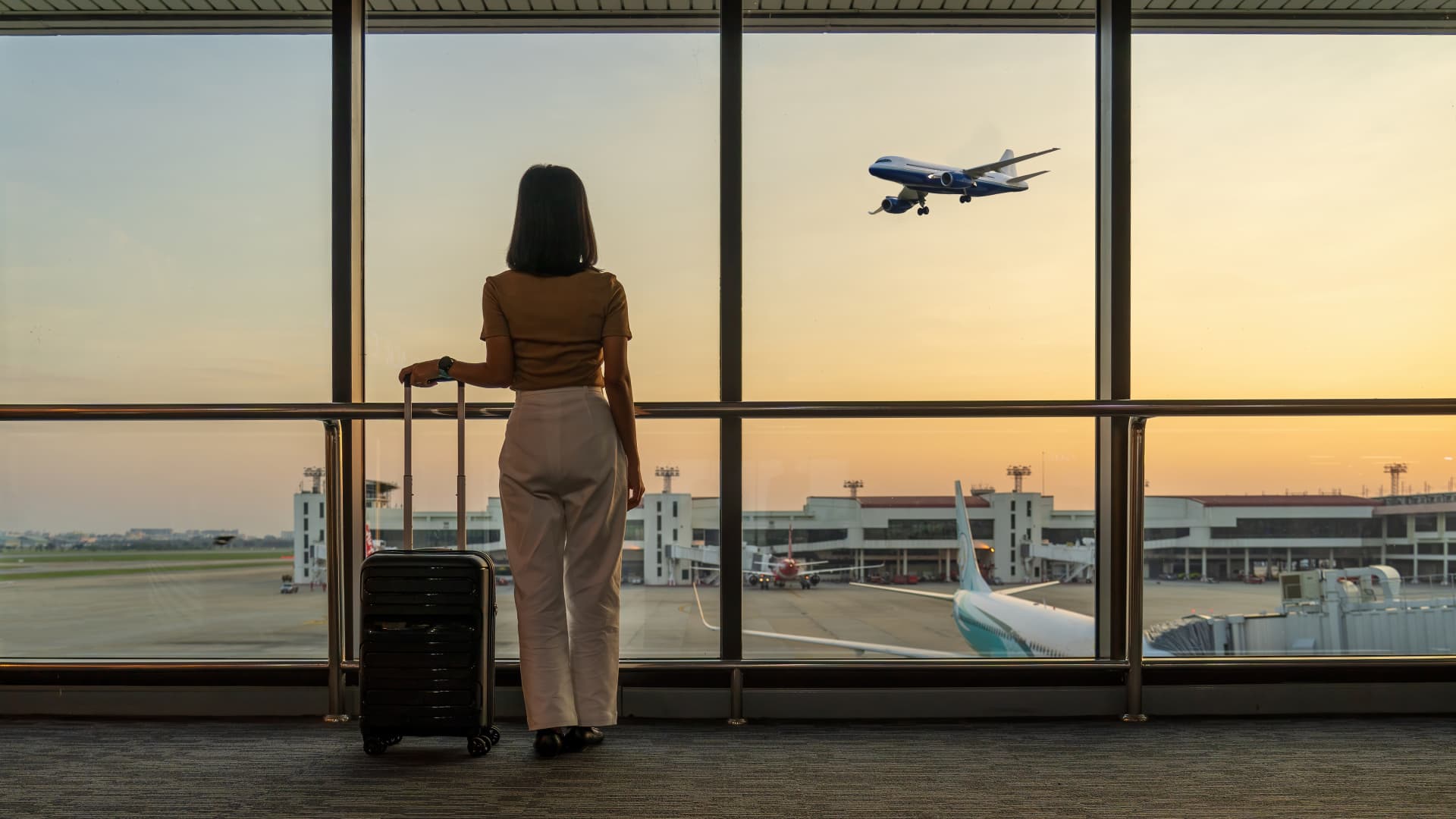Products You May Like
Jan. 30 is National Plan for Vacation Day — and travelers mapping out their next excursion have a few reliable money-saving hacks at their disposal.
Total travel costs — including airfare, hotels, rental cars, dining out and entertainment — are down an average 2% in the past year, according to the NerdWallet Travel Price Index. Jetsetters can expect travel this year to be a bit cheaper relative to 2023, especially for domestic trips, experts said.
Here are some top ways to stretch your budget.
1. Avoid peak season
Traveling during a destination’s shoulder or off season — and avoiding its busiest periods — is a surefire way to save big bucks, experts said.
“Shifting away from the peak, peak months, even weeks, is key,” said Hayley Berg, lead economist at Hopper, a travel app.
Peak and off seasons fluctuate based on location. June through August are generally among the busiest months for domestic and overseas trips — and that often means higher prices.
For example, on average, travelers can save 32%, or $112, on round-trip domestic airfare by going during September and October instead of peak summer months, according to Hopper data. Savings on hotel rates are harder to predict but would generally also be “considerable,” likely about 30% on average, Berg said.
Traveling during the shoulder and off seasons may have additional benefits such as thinner crowds and weather sometimes being as good or better.
Of course, some sites, attractions or restaurants may be closed, especially during off months, experts said. In addition, not everyone has the luxury of flexibility. Parents may be beholden to school schedules, for example. Even then, traveling in August instead of June or July is generally cheaper, Berg said.
2. Travel midweek — for most destinations
For most locales, airfare and lodging are significantly cheaper midweek relative to the weekend, meaning flexible travelers can score big savings.
“The easy rule: The dates that are probably the most convenient are probably the most expensive,” Berg said.
Sunday is generally the most expensive day to fly, data shows.
Domestic airfare is, on average, 24% lower by flying on a Tuesday, translating to savings of about $85 a ticket, according to NerdWallet.
More from Personal Finance:
Don’t let this passport quirk upend your next vacation
2024 is the ‘year of globetrotting,’ travel expert says
New Europe travel requirement delayed again, to 2025
Domestic and international flights that leave on a Monday, Tuesday or Wednesday have historically been 12% cheaper than weekend departures, according to Google Flights data.
The midweek rule of thumb generally applies regardless of destination, Berg said. The one exception: Oceania, where the cheapest day to fly is Sunday, according to Hopper data.
Travelers can use online tools such as Google Flights, which displays a calendar of prices for comparison by day, said Sally French, travel expert at NerdWallet.
Travelers will also pay a 20% to 23% premium, on average, for nightly hotel rates on a Friday or Saturday, Hopper found. Those weekend premiums can be especially high in top domestic and overseas areas. In Las Vegas, average nightly rates nearly double.
3. Book early
The Covid-19 pandemic led Americans to defer trip purchases to the last minute, and that behavior has persisted. However, waiting too long to book, airfare especially, can be costly.
“The reality is, you need to book your flights in advance,” French said.
Experts recommend booking flights about one to three months ahead for U.S. trips, and even further ahead, maybe three to six months or more, for international trips.
Ideal booking times depend on your specific route, “so planning and booking early is usually a good idea,” according to the Google Flights analysis.
Hotels are a bit trickier. In big cities with many options, the best prices will be just 48 hours ahead of check-in, Hopper found. However, best prices are typically one to two months out for popular destinations such as Miami or Cancun, and rooms in popular vacation cities can book up early.
4. Try a ‘dupe’
Data shows many travelers sought out cheaper duplicates, or “dupes,” of pricey destinations in 2023.
Applied broadly, tourists should look beyond the tourist hot spots and consider less-popular areas to save money, experts said.
“This is huge, especially for travelers who are looking to stretch their budget a little further,” Berg said.
For example, Europe is consistently the top destination for Americans traveling abroad. Round-trip airfare can easily cost more than $1,000 to many top European locales. Flying to certain cities can be much cheaper, though. For example, a flight to Lisbon or Porto in Portugal averages about $650 to $700, Hopper said.
Similarly, flying to Athens instead of Santorini can save almost $400 on a round-trip ticket, while going to Naples instead of Palermo in Italy would save about $125, according to Hopper.
Likewise, those eyeing a trip to South America would spend $375 for an average round-trip ticket to Cartagena, Colombia, compared to about $900 to Buenos Aires, Argentina, it found. Those going to Australia pay an average $1,214 to Sydney, but almost $1,500 to Melbourne.
Don’t miss these stories from CNBC PRO:
- Forget the ‘Magnificent 7,’ these Nasdaq stocks are next in line to lead the rally, according to the charts
- Nvidia is now ‘deeply overbought’ and due for ‘consolidation,’ says chart analyst
- Eli Lilly’s Zepbound is off to a strong start, but here’s what needs to happen to push shares higher
- Investors are shifting into this type of bond fund at the fastest pace in three years
